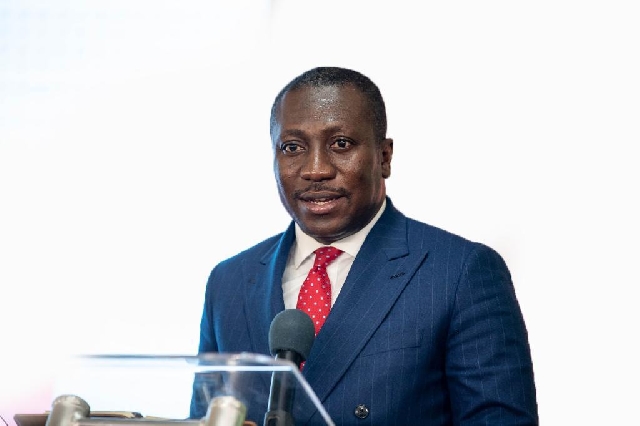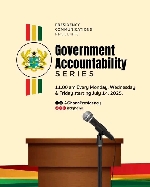Afenyo-Markin decries attitude deficit of Ghanaians
 Alexander Afenyo-Markin, MP for Effutu
Alexander Afenyo-Markin, MP for Effutu
Minority Leader Alexander Kwamina Afenyo-Markin has raised alarm over what he describes as a growing “attitude deficit” among Ghanaians, warning that it could undermine the country’s economic progress and threaten its democratic foundations if not urgently addressed.
Speaking on the need for a cultural shift, Afenyo-Markin emphasised that while Ghana has recorded positive economic data in recent times, sustaining that momentum will be impossible without a change in mindset among citizens.
According to him, many Ghanaians continue to view government interventions as handouts or “freebies” rather than opportunities to empower themselves and contribute to national development.
“The challenge is not just policy or leadership—it’s an attitude deficit,” he stated.
“There’s a general lack of accountability and responsibility among citizens, and that is stalling our progress.”
He lamented that political interference has worsened the problem, with successive governments failing to hold beneficiaries of state programmes accountable.
Citing historical examples, he mentioned the failure of beneficiaries to repay loans under several government initiatives, including:
Former President Rawlings’ Poverty Alleviation Fund
President Kufuor’s MASLOC initiative
President Mahama’s Chapter One
President Akufo-Addo’s NEIP (National Entrepreneurship and Innovation Programme)
“In each of these cases, many people simply took the funds and walked away,” Afenyo-Markin said.
“The question is: why isn’t the government going after people who failed to pay for tractors and other support? The answer is politics. We care more about votes than about discipline.”
He warned that unless this cycle is broken, the country will remain stuck in a pattern of stagnation, where programmes are introduced but fail to deliver lasting impact due to poor follow-through and a lack of civic responsibility.
Calling for a national dialogue, Afenyo-Markin urged political leaders, civil society, and the citizenry to come together to chart a new course—one that fosters a culture of accountability, ownership, and responsibility.
“If we don’t change our approach and start demanding more from both our leaders and ourselves, our democracy could be at risk,” he cautioned.
Source: Classfmonline.com
Trending News

Betrayed and unsafe: NDC executives threaten to withdraw from campaigns in Kusaug
13:46
Gov’t to pay 3% percent share of DACF for PWDs on Monday
12:46
Dr. Razak Kojo Opoku calls for 'substitution' in NPP's 2028 flagbearer race
21:56
Another police brutal assault on journalist at Ablekuma North
09:52
NDC executives in six Kusaug constituencies denounce Mahama
15:43
GFZA, Prison Service forges partnership to boost inmate rehabilitation
12:01
Presidency launches gov't accountability series to promote transparency
19:26
GTEC under fire over alleged push to reinstate staff implicated in EOCO theft probe
09:11
NDC executives decry ‘state-sponsored assault’ in Bawku
13:28
MDCC leaders pay courtesy call on Deputy Energy Minister
11:34




